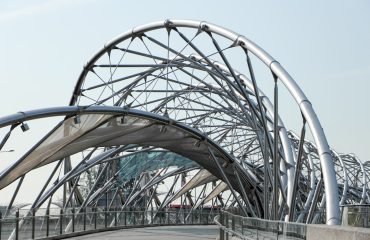Turkey’s steel industry has experienced remarkable growth in recent decades, transforming itself from a regional player into a significant force in the global steel market. This growth is driven by a combination of factors, including strategic investments in infrastructure, technological advancements, and a government focused on promoting exports. This article delves into the intricacies of Turkish steel’s global journey, exploring its strengths, challenges, and future potential.
The Rise of Turkish Steel Production
Turkey’s steel production has witnessed a dramatic increase, fueled by substantial investments in modern steel mills and related infrastructure. The country boasts a diverse range of steel production facilities, capable of producing a wide spectrum of steel grades, from basic carbon steel to specialized alloy steels. This diversification allows Turkish producers to cater to a broader range of international clients, further solidifying their position in the global market. Key players in the Turkish steel sector have consistently upgraded their facilities, adopting advanced technologies like electric arc furnaces (EAFs) and continuous casting processes to enhance efficiency and product quality. This commitment to technological advancement is crucial for competitiveness in a global market characterized by intense competition and demanding quality standards. The government’s supportive policies, including incentives for modernization and expansion, have further accelerated this growth.
Key Players and Their Global Reach
Several prominent Turkish steel companies have emerged as major players on the world stage. These companies, often vertically integrated, control the entire production process, from raw material sourcing to finished product delivery. This vertical integration provides them with a significant cost advantage and enhances their ability to manage supply chains effectively. Many of these companies have established strong export networks, reaching customers across Europe, the Middle East, Africa, and Asia. Their success is attributed to a combination of factors: competitive pricing, reliable delivery, and a commitment to meeting international quality standards. These companies actively participate in international trade fairs and exhibitions to expand their reach and build relationships with global clients. Furthermore, they often tailor their products to meet the specific needs of different markets, showcasing their adaptability and understanding of global demand.
Export Strategies and Market Penetration
Turkey’s success in the global steel market is significantly linked to its effective export strategies. The government has actively supported the steel industry’s export efforts through various initiatives, including trade agreements and export promotion programs. Turkish steel companies have effectively leveraged these initiatives to penetrate new markets and expand their customer base. Their competitive pricing, coupled with reliable delivery and quality control, has been instrumental in winning contracts against competitors from other countries. Furthermore, many Turkish steel producers have focused on building strong relationships with international buyers, fostering trust and long-term partnerships. This approach has been particularly effective in establishing a reliable and consistent supply chain, crucial for securing long-term contracts in the global market. The emphasis on quality assurance and adherence to international standards further strengthens their position in the competitive global landscape.
Challenges and Opportunities for Turkish Steel
Despite its significant achievements, the Turkish steel industry faces several challenges. Fluctuations in global steel prices, raw material costs, and energy prices pose considerable risks. Competition from other major steel-producing countries, particularly those with lower labor costs, also presents a significant challenge. Furthermore, environmental regulations and the need for sustainable production practices are increasingly important considerations. However, these challenges also present opportunities. Investing in advanced technologies that enhance efficiency and reduce environmental impact can strengthen Turkey’s competitiveness. Focusing on niche markets and specializing in high-value steel products can also yield significant returns. Exploration of new markets and strategic partnerships can further help Turkish steel companies navigate these challenges and seize the opportunities for growth.
The Future of Turkish Steel in the Global Market
The future of Turkish steel in the global market appears promising. Continued investment in modernization, technological advancements, and sustainable practices will be crucial for maintaining competitiveness. Focusing on value-added products and niche markets, coupled with a strong emphasis on quality and reliability, will be vital for securing a strong position in the global landscape. Strategic partnerships and collaborations with international companies can further enhance Turkey’s global reach and access to new technologies and markets. The Turkish steel industry’s ability to adapt to changing market dynamics and embrace innovation will be key to its continued success and expansion in the years to come. The focus on sustainable production methods and environmental responsibility will also be increasingly important in attracting environmentally conscious customers globally.
Tags: Turkish Steel, Global Steel Market, Steel Exports, Turkish Steel Industry, Steel Production




